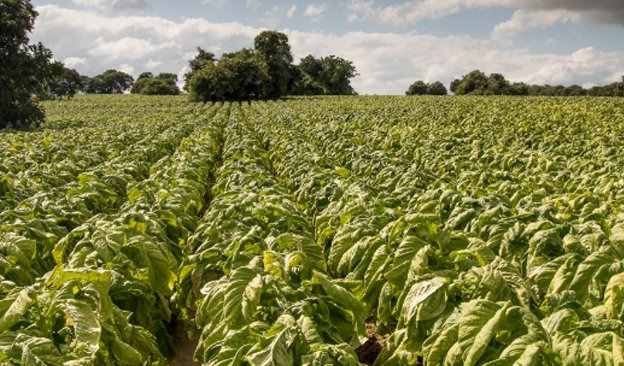Zimbabwe, Africa’s largest tobacco producer, launched its tobacco-selling season on Wednesday with a speech by the vice president and eager international buyers. Despite increased fertilizer prices caused by the war in Ukraine, the size of the tobacco crop increased this year. Zimbabwe expects to harvest 230 million kilograms (254,000 tons) of the golden leaf this season, up from 212 million kilograms (234,000 tons) last year.
However, Zimbabwe’s tobacco industry faces several challenges. One of the significant issues is the lack of funding for farmers. China currently funds most of the production and buys the lion’s share of Zimbabwe’s tobacco. The system is bleeding the country as most of the proceeds of the tobacco sales return offshore. “The problem is that the contractors are unable to borrow money here so they borrow offshore. They bring it in, they advance the inputs to growers. The contractors then buy the crop and then they have to return the money to the offshore bankers,” said Patrick Devenish, chairman of the regulatory body, the Tobacco Industry Marketing Board. “We want that money retained in our country so that our country can benefit.”
Another challenge facing Zimbabwe’s tobacco industry is the changing climate. Farmers have experienced long dry spells and unseasonal rains, which have affected their yields. The lack of irrigation systems and poor infrastructure further exacerbate the problem.
Moreover, the tobacco industry faces the challenge of ensuring sustainability. The industry has come under scrutiny for environmental and labor-related issues. To address these issues, Zimbabwe’s government has put in place regulations to ensure that farmers follow sustainable agricultural practices.
Despite these challenges, Zimbabwe is committed to making its tobacco industry more lucrative. The southern African country wants to manufacture more cigarettes at home and limit foreign funding of farmers. Currently, China funds the bulk of production and buys the lion’s share of Zimbabwe’s tobacco. By manufacturing more cigarettes locally, Zimbabwe hopes to boost its value-added exports.
Vice President Constantino Chiwenga addressed the funding problem when he spoke at the auction opening. He said that next season, the government would advance $60 million to farmers under a tobacco transformation plan that seeks to improve local funding of the crop from the current 5% to 70% by 2025. By that time, the country also hopes to have increased annual harvests to 300 million kilograms (331,000 tons).




